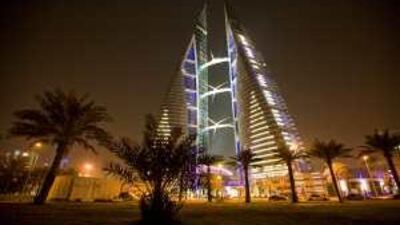Gulf economists are lowering their expectations on economic growth in the region for this year due to worries that a sustained period of lower oil prices could worsen the impact of the global financial crisis. In the past few years, strong oil revenues and cheap credit have fuelled growth in the Gulf, particularly in the property sector, but with real estate prices falling, credit in short supply and oil prices down to about one third of their July highs, the economic outlook for many regional countries is dimmer, economists say. This year, some are forecasting that the UAE, in particular, could see little or even negative growth in real GDP. "The UAE is a small, open economy which is heavily reliant on exports, construction and real estate and these will all take a heavy hit," Standard Chartered said yesterday in a research note, while lowering its estimate for GDP growth this year from 2.7 per cent to 0.5 per cent. Monica Malik, an economist at EFG Hermes, said "growth could be negative" in the UAE this year. Last month, EFG Hermes predicted that the UAE would see a 3.1 per cent growth rate this year. Such a slowdown would mark the end of a stretch of rapid growth in the region. Since 2000, the nation has averaged above 7 per cent real GDP growth annually, according to the International Monetary Fund. The first half of the year should be the most difficult for regional economies, Standard Chartered said. After July, however, the Gulf economies should start to see a "moderate recovery". It said Qatar would fare the best this year "given the country's wealth and heavy investment in infrastructure". Although Dubai's economy is among the most diversified in the region, the emirate relies on an influx of regional oil wealth to fuel its growth. Should that funding dry up as a result of sustained low oil prices, Dubai's economy could be hit particularly hard this year, according to Mohamad Hawa, an economist at Credit Suisse. "Dubai has been the financial and business capital of the Gulf in the past few years and we think the slowdown in economic activity in the region will have a significant impact on non-oil revenues there," he said in a recent report. Some Gulf governments may be able to offset the effects of the crisis by spending their savings on local projects. Abu Dhabi, for example, should be able to continue spending at present levels for years, even if low oil prices force it to run a small deficit in doing so, according to Moody's Investors Service. Bahrain, however, may not be so fortunate. "Bahrain has more limited reserves of liquid financial assets [than other regional oil exporters] that can be tapped to finance fiscal deficits and ease adjustment," according to Tristan Cooper, a sovereign analyst at Moody's. Yesterday, Abu Dhabi announced its economic plan for the next 21 years, which aims for 7 per cent real GDP growth until 2015, followed by 6 per cent growth until 2030. Economists said such figures were realistic in the medium and long terms, but may be more difficult to achieve this year due to economic pressures. Standard Chartered also lowered its GDP growth estimates for Saudi Arabia from 2 per cent to 1 per cent for this year. Bahrain was revised down from 3.5 per cent to 2.5 per cent, while Kuwait's was lowered from 3 per cent to 1.5 per cent. Slower growth in the region should, however, slow inflation, which reached double digits in the Gulf during the past few years, according to economists. Merrill Lynch expects inflation in the UAE to dip from an estimated 11.8 per cent last year to 8 per cent this year. tpantin@thenational.ae

Gulf growth forecasts cut down
Gulf countries are expected to see economic growth slow as the falling oil price and the global slowdown bite.
Most popular today
